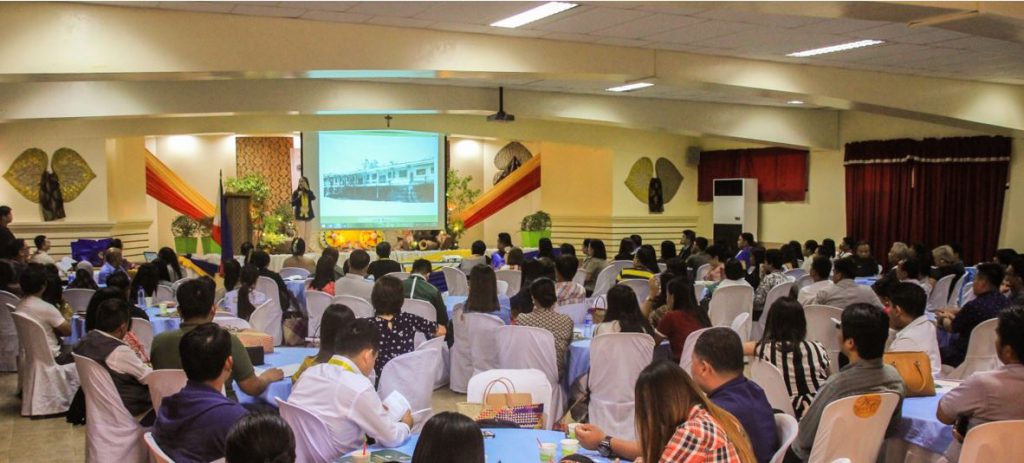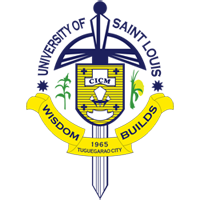
Tuguegarao City, Philippines – The University of Saint Louis (USL), through its Center for Social Innovation, Local Knowledge and Educational Research (CSILKER), held its 1st International Research Conference on Local Knowledge on Oct. 24-27, 2018 here with a total of 115 researches presented during the entire conference.
The said research event gathered scholars and Higher and Basic Education teachers who are interested in doing local knowledge and indigenous studies and researches.
 The conference specifically aimed at “building strong partnerships and linkages among institutions, scholars and local knowledge enthusiasts in the Philippines and in the world in the promotion of local knowledge and indigenous studies as an important tool in achieving sustainable development in a multicultural world.”
The conference specifically aimed at “building strong partnerships and linkages among institutions, scholars and local knowledge enthusiasts in the Philippines and in the world in the promotion of local knowledge and indigenous studies as an important tool in achieving sustainable development in a multicultural world.”
The conference organizing committee opened the following topics for oral research presentation to prospective participants: Cultural Studies, Local History, Ethnobiology, Intangible Cultural Heritage, Tangible Cultural Heritage, Indigenous Peoples Education, Culture and the Arts, Archeology, Anthropology and Sociology, Philippine Studies, Cagayano Development Studies, and other related fields.
A total of 67 schools and Department of Education (DepEd) offices across the country registered for the said event.
To open the conference, USL president Rev. Fr. Renillo H. Sta. Ana, CICM, gave the welcome address; Dr. Khayala Mammadova, head, International Multicultural Network based in Azerbaijan, sent a video message; and Hon. Manuel N. Mamba, Cagayan provincial governor, and Hon. Jefferson P. Soriano, Tuguegarao City mayor, gave their messages of support.
Giving their respective keynote speeches were: Dr. Estela L. Cariño, Director IV, DepEd Region 2, on “Local Knowledge and IP Initiatives in the Basic Education”; Ms. Ruth Lasam, OIC-director, Commission on Higher Education (CHED) Region 2, on “The Role of Higher Education in Local Knowledge Promotion”; and Mr. Ruben S. Bastero, CESO III, Director IV–National Commission on Indigenous Peoples (NCIP) Region 2, on “Identity and Culture of Indigenous Communities in the Cagayan Valley Region.”
A socialization and cultural night capped the opening day.
The conference consisted of three plenary sessions, each with a speaker. After each plenary talk, the conference participants broke into parallel sessions for the research presentations.
Dr. Leah E. Abayao, director of the Cordillera Studies Center and professor at the University of the Philippines–Baguio, discussed “Resituating Local Knowledge and Indigenous Studies.”
Dr. Danilo S. Alterado, president of the Philosophical Association of Northern Luzon and associate dean of the School of Teacher Education and Liberal Arts at Saint Louis University, Baguio City, tackled the “Indigeneity and Filipino Philosophy: an Ilokano and Amianan Perspective.”
Rev. Fr. Ferdinand T. Maguigad, principal of the Lyceum of Aparri Junior High School, Aparri, Cagayan, gave the talk “Revisiting the Cagayano Identity in the midst of Modernity,” as part of the conference’s Cagayano Development pocket seminar.
Actual researches presented were on the following topics: (1) Cultural Education, (2) Stories, Folktales, and Values Education, (3) Cultural Studies, (4) Indigenous Communities of the Philippines, (5) Language and Literature, (6) Indigenous Scientific Beliefs and Practices, (7) Policy Studies and Extension Programs, (8) Teaching and Learning, (9) IP Studies: Focus on the Aetas, (10) Spirituality and Religion, (11) Hospitality and Tourism, (12) Political Systems and Conflict Management, (13) Indigenous Studies in the Philippines, (14) Flora and Fauna, (15) Communication Arts, (16) Indigenous Studies and Culture and the Arts, (17) Cagayano Studies, (18) Studies on Cagayan Valley, and (19) Local History.
Some of the participants visited Cagayan’s tourist destinations such as Palaui Island in Sta. Ana, the Magapit Bridge and “Castle in the Sky” in Lallo, the Camalaniugan Bell, and Alcala Church.
The conference organizing committee includes USL VP for Academics Emmanuel James P. Pattaguan, as honorary chair; Dr. Darin Jan C. Tindowen, CSILKER head, conference chair; and Dr. Khayala Mammadova, head of the International Multicultural Network, co-chair.
Members of the organizing committee were from USL’s Institutional Research and Publication Office (IRPO) and three specialized research centers, excluding CSILKER. They were Dr. Marie Jean N. Mendezabal, Dr. Eladio Martin S. Gumabay, Prof. Ertie C. Abana, Prof. Jennifer C. Bangi, Prof. Emilio A. Carag, and Prof. Karen Joy A. Catacutan.
The international advisory board for said conference was composed of Gunay Hasanli, Azerbaijan; Taleha Ismayilova, Azerbaijan; Hamide Yusra Erilli, Turkey; Mihaela Culea, Romania; Ulviyya Sanili Aydin, Turkey; Umer Irfan, Pakistan; Muddassar Sarfraz, China; Alessio Stilo, Italy; Miguel Lopez–Astorga, Chile; Andrzej Klimczuk, Poland; Saiful Anwar Matondang, Indonesia; Eşi Marius, Romania; Savalan Suleymanli, United Kingdom; Belkacem Belmekki, Algeria; Archana Arul, India; Roberto Pagulayan, Philippines; and Danilo Alterado, Philippines.
Conference partners were CHED, DepEd, International Multicultural Network, National Commission on Culture and the Arts (NCCA), NCIP Region 2, Department of Tourism (DOT) Region 2, Provincial Government of Cagayan, City Government of Tuguegarao, and Education USA.
Dr. Tindowen can be reached at irpo-csilker@oldwebsite.usl.edu.ph.

